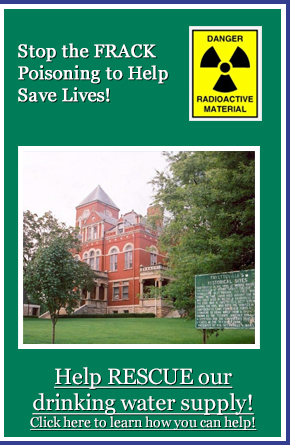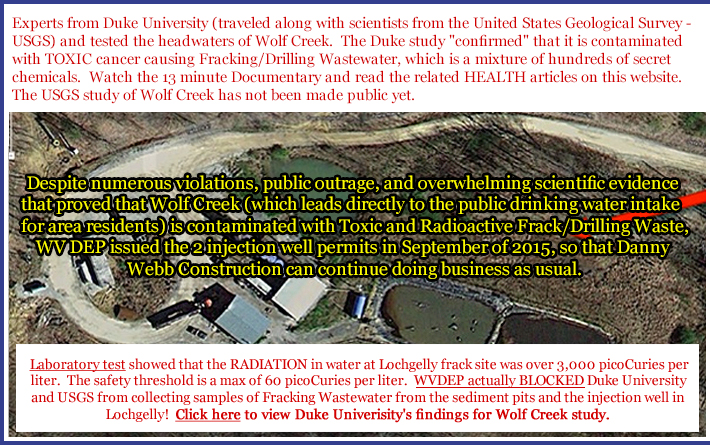West Virginia's Top Cancer Researcher Opposes Disposal of Fracking Wastewater in Lochgelly, WV.
My name is Michael Hendryx. I am a Professor in the School of Public Health at West Virginia University. I am concerned about the disposal of wastewater from hydraulic fracturing activity in Lochgelly, WV. These waste fluids are being held near residential areas including schools, and pose a risk for both air and water pollution that can affect human health. Fracking wastewater contains numerous chemicals that are used in the extraction process, and that are brought up as recovered water from deep underground. Some chemicals used in fracturing, or recovered from underground, are known to be harmful if people are exposed to them. These include ethylene glycol, methanol, diesel products, strontium, and others. The EPA has identified at least 27 chemicals that are used in hydraulic fracturing formulas that are known to be hazardous to health. There are hundreds of other chemicals that are used in these formulas that have unknown health impacts. The possible health effects of all of these chemicals are not understood, but we cannot assume that they are safe if their effects have not been investigated. If chloride or bromide from hydraulic fracturing wastewater comes into contact with drinking water sources, they may interact with normal drinking water treatment systems to form brominated disinfection byproducts, which at high exposure levels are carcinogenic and are harmful to normal reproduction and development. From a public health perspective, because we don’t know what harm might result from exposure to this complex mixture of chemicals, some of which are known to be harmful to human health, it is prudent and appropriate to immediately stop disposing of this wastewater close to places where children and other people live.

